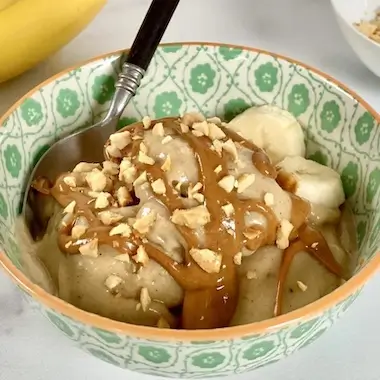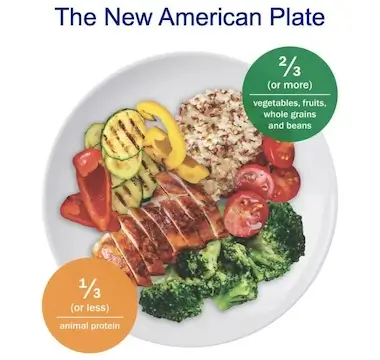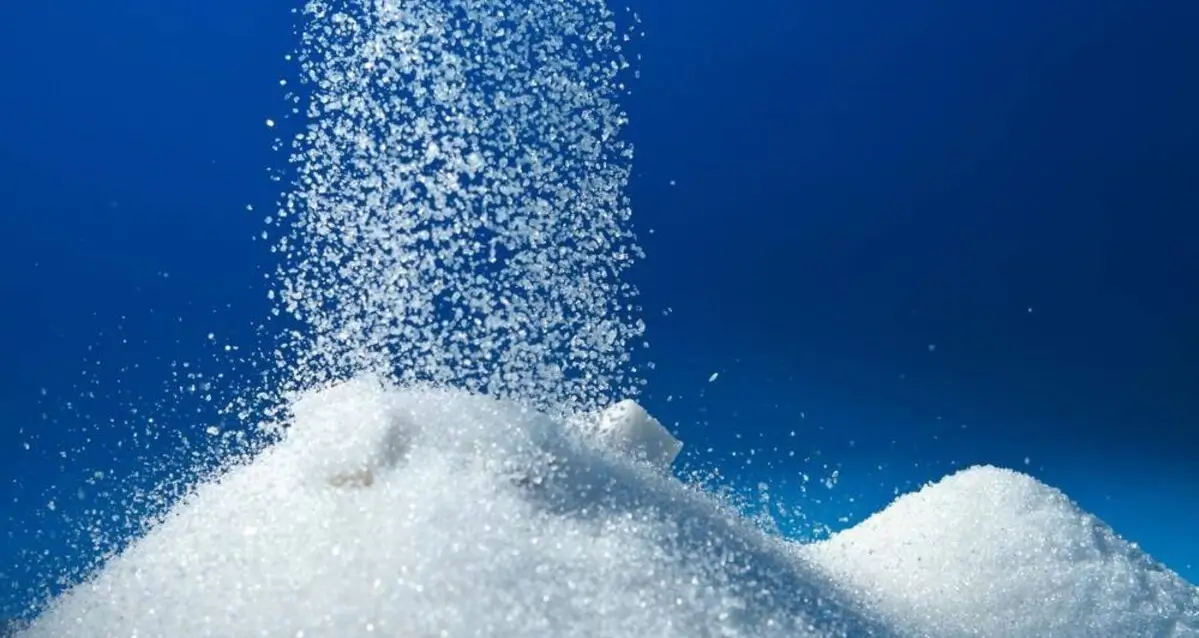Sugar and Cancer: A Myth-Understanding
FEATURED RECIPES
Peanut Butter Banana “Ice Cream”

Ingredients
- 4 large ripe bananas, sliced
- 2 TBSP peanut butter (or other, such as sunflower butter or almond butter)
- ¼ tsp vanilla extract
- ½ tsp cinnamon
- ¼ tsp salt
- 2 TBSP chopped peanuts, for garnish (optional)
Instructions
- Slice bananas into chunks and freeze on a flat sheet pan. (with pieces separate so they don’t freeze together) until solid; at least 1-2 hours.
- Add frozen bananas to blender or food processor and blend until smooth and creamy. This will take a few minutes with periodic pauses to stir and scrape sides.
- Once bananas are creamy, add peanut butter, salt, vanilla, and cinnamon. Blend until combined.
- Scoop into bowls, garnish with peanuts (if desired).
Click here for complete recipe.
DIFFERENT RECOMMENDATIONS?

Different professional health groups may word their lifestyle recommendations slightly differently.
If you look, common themes emerge:
- Eat more plant foods.
- When you choose animal products, go with leaner and lower fat choices.
- Avoid highly processed foods.
- Avoid foods with added sugar, including beverages.
- Limit or avoid alcohol.
- Be physically active.
The New American Plate is a visual representation of the diet recommendations from the American Institute for Cancer Research.
This model encapsulates the diet recommendations presented in “How to Prevent Cancer: 10 Recommendations”. The website is highly interactive and includes information on incorporating the guidelines into real life.
It does not quantify grams of specific nutrients to aim for (or below), as some groups do. However, following the recommendations will generally lead to reduced intake of salt, saturated fat, and trans fats.
Sugar & Cancer
A Myth-Understanding

Many people with cancer preemptively eliminate sugar, because “sugar feeds cancer” or “cancer loves sugar.” The hope is that by not eating sugar they can stop cancer from growing and spreading. The truth is more complicated. There is no evidence that dietary sugar directly fuels cancer growth or that eliminating sugar can slow cancer growth.
Every cell in the body uses sugar (glucose) as fuel. Even in the absence of a dietary source, our bodies make glucose from other molecules through the process of gluconeogenesis. It is true that cancer cell metabolism differs from healthy cells. Essentially, cancer cells are less efficient than healthy cells. They require more glucose to generate energy. That is why tumors show up on PET scans, not because healthy cells don’t use glucose. Nutrition provides essential support during treatment, but it cannot target cancer cells. Yet, that idea can lead some people to avoid all carbohydrate-containing foods, including some proven cancer-fighting foods, such as fruits, vegetables, whole grains, and legumes.
For people on cancer treatment, preventing muscle loss becomes the top nutrition-related priority. There is ample evidence that people who maintain muscle mass during treatment have fewer treatment delays and better quality of life during therapy. If a person is struggling to meet their basic nutrition needs, creating additional obstacles with unnecessary restrictions is counterproductive.
For people without significant side effects and those who have completed treatment, the American Institute of Cancer Research (AICR) recommends following a plant-based diet. AICR guidelines recommend limiting sugar-sweetened drinks and excess sugar, which can lead to weight gain. According to AICR, excess body weight increases the risk of at least 12 different cancers, including breast, prostate, colorectal, kidney, liver, pancreatic, uterine, and ovarian cancers.
There is also an increased risk of certain cancers for people with Type 2 diabetes. However, it remains unclear whether the connection is direct or indirect– It may be that diabetes is a marker for factors that alter cancer risk. Or it may simply be that cancer and diabetes share some risk factors, such as obesity.
Moderation & Balance
All carbohydrates eventually break down to glucose, but not all carbohydrates are created equal!
When we eat carbohydrates, our GI tract breaks them down to monosaccharides (the simplest form of sugar, which cannot be broken down further). Glucose is the main monosaccharide. When glucose enters the bloodstream, our bodies respond by releasing insulin, which allows the glucose into the cell to use as energy.
Simple carbohydrates, including added sugar and refined grains, convert quickly to glucose, which leads to a surge of insulin. This, in turn, can cause blood sugar to fall rapidly. When we eat more complex carbohydrates, such as those that include fiber, it takes longer to break down to glucose. This results in a slower release of glucose and insulin into the blood. Complex carbohydrates also maintain physical fullness longer, making overeating less likely.
When we look at recommendations for heart health, diabetes prevention/management, and cancer prevention/survivorship, a common theme emerges. They all emphasize eating more complex carbohydrates (whole grains, legumes, vegetables, and fruit) and fewer simple carbohydrates. This consensus is great news! In a world filled with “click bait,” it is all too easy to conclude that eating well is a complicated endeavor. When it comes to carbohydrates, just remember it doesn’t have to be the more complex the better! Limiting added sugar (including honey and maple syrup) is a great habit for long-term health.
Remember that overall patterns are more important than isolated occasions. The occasional treat will not negate the benefits of a healthy lifestyle. The relationship between sugar and cancer is a topic riddled with misinformation and one that provokes anxiety for patients and their loved ones. As is often the case, the key is moderation and balance.
Selected Sources & Further Reading
- American Institute for Cancer Research:“Sugar and Cancer.”
- Mayo Clinic:“Cancer Causes: Popular myths about the causes of cancer.”
- Memorial Sloan Kettering: “The Lowdown on Sugar and Cancer”
- World Cancer Research Foundation: Diet, Nutrition, Physical Activity and Cancer: a Global Perspective.
Published: September 2025


Comments